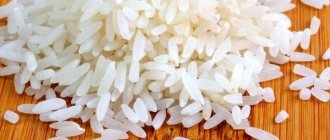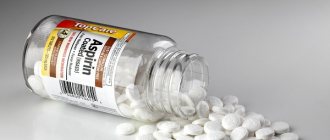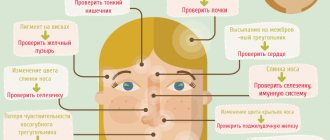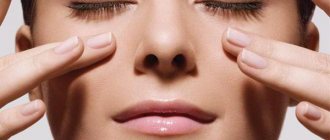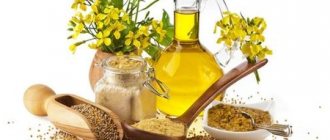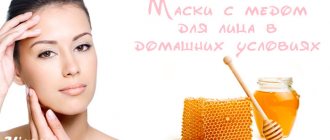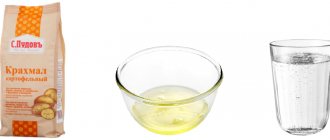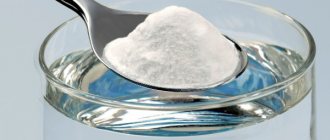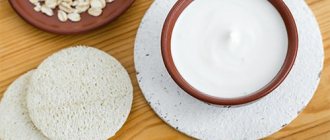Surely there is a pack of aspirin in every home medicine cabinet. This remedy is used for colds to reduce fever and relieve pain, as well as to treat diseases in the field of cardiology.
In addition, aspirin is successfully used in home cosmetology. The main component of the drug is acetylsalicylic acid. This is a proven antiseptic and anti-inflammatory agent. In addition, the drug causes increased blood circulation, that is, an anti-wrinkle mask with aspirin has a beneficial effect by improving cell nutrition and enhancing their regeneration.
What is aspirin and how is it used in cosmetology?
Acetylsalicylic acid, popularly known as aspirin, was first synthesized in the late 19th century. Initially, the medicine was positioned as an inexpensive and effective antipyretic, but over time, other magical properties of the miracle pill became clear.
The benefits of acetylsalicylic acid
The peak of aspirin's fame came in the last decades of the last century, when it was prescribed en masse:
- As an anti-inflammatory and antipyretic agent;
- For the treatment and prevention of heart disease;
- For the prevention of cancer;
- And even in the fight against senile depression.
It is not surprising that people found other ways to use this “magic remedy”: as the main ingredient in face masks for acne, for whitening things and even recharging the battery.
The use of aspirin in cosmetology is primarily due to its pronounced anti-inflammatory effect.
Moreover, unlike natural anti-inflammatory components, the results from external use of acetylsalicylic acid are visible almost immediately and last for quite a long time.
In this regard, homemade face masks with aspirin:
- Used as an express remedy for acne;
- Used for deep cleansing of the skin (homemade aspirin peeling);
- Help fight against acne and redness on the skin of the face;
- Evens out complexion, whitens skin and lightens age spots;
- Reduce the severity of age and expression wrinkles;
- Partially eliminates blackheads and normalizes sebum production.
However, the effectiveness of such masks and scrubs is explained, first of all, by the aggressive effect of acetylsalicylic acid on the skin of the face, and dermatologists do not recommend getting carried away with such procedures.
Harm of aspirin and contraindications to the use of acetylsalicylic acid
In the scientific community, the debate about the dangers of aspirin does not subside to this day, however, in recent years, most doctors have tried to use drugs based on acetylsalicylic acid in their practice as little as possible, preferring more gentle drugs with fewer side effects.
Expert opinion
Useful advice from the editor
Regarding aspirin face masks, it should be clarified: no matter how the drug accumulates in the body - through regular taking of tablets or uncontrolled application of the product to the skin - its destructive effect on tissues and organs will remain unchanged.
- Firstly, it has been proven that aspirin is severely damaging to the liver and can lead to severe brain damage (for this reason, the tablets are contraindicated in children under 15 years of age).
- Secondly, with frequent use of acetylsalicylic acid, blood clotting disorders and numerous reactions associated with individual intolerance to the substance are possible (in this case, a “cumulative effect” is observed - the longer you use the product, the greater the “range” of side effects you are guaranteed).
- Aspirin is also contraindicated during pregnancy and breastfeeding - it is quickly absorbed into milk and can cause damage to the vascular system and bleeding in the baby.
- In addition, aspirin negatively affects vision, kidneys and can lead to severe poisoning when interacting with alcohol.
Thus, our readers should be seriously warned: no matter how “magical” effect face masks with acetylsalicylic acid have, and no matter how tempting the prospect of quickly getting rid of hated acne “for pennies” and at home is, do not forget that aspirin is a serious drug with a huge list of side effects and contraindications.
Of course, if you use aspirin recipes only in emergency cases (for example, when you need to quickly lighten the skin and remove redness before a holiday), then there will be no harm to health, but including them in daily/weekly facial care is strictly not recommended.
Below we offer you a selection of the most effective, proven recipes for aspirin masks and scrubs that you can prepare at home.
Contraindications, possible negative consequences and necessary precautions
A significant advantage of homemade masks is their natural or almost natural composition. But these are the ingredients that most often cause allergies. Therefore, a preliminary test is required as a necessary precaution. Apply a couple of drops of the mixture to the inside of your wrist or the crook of your elbow. It takes 20–30 minutes for a negative reaction to appear.
Pregnancy is a radical hormonal change in the body; it is impossible to predict how he will react to any “foreign” substance in this state
In some cases, masks with aspirin are strictly contraindicated:
- the entire period of pregnancy and breastfeeding of the child;
- asthma and other diseases of the bronchopulmonary system;
- kidney problems;
- any mechanical damage to the skin of the face, dermatological viral or infectious diseases;
- rosacea (a network of blood vessels on the face);
- fresh tan (no matter natural or artificial);
- recent cosmetic procedure (injections, deep peeling).
Aspirin dilates blood vessels, which are already dilated with rosacea, exacerbating the problem
The main negative consequence is a chemical burn to the skin. Irritation occurs, the face turns red and peels. There is a feeling of itching and unpleasant tightness. If you do not aggravate the situation and use wound-healing and anti-burn ointments and creams (for example, Bepanten, Panthenol), the skin condition will normalize in 3-4 days. When crusts form, you cannot peel them off - unsightly dark spots will remain.
Aspirin is by no means harmless for facial skin; besides allergies, burns are the most common negative consequence
Face mask with honey and aspirin: photo recipe and real reviews
A face mask with honey and acetylsalicylic acid is sometimes marketed as a homemade face peel with aspirin.
In the classic version, the recipe consists of only two components:
- Aspirin – 1 tablet;
- Natural flower honey – 1 tsp.
Of course, if necessary, the volume of ingredients can be increased proportionally.
The active element of such a mask is acetylsalicylic acid, which:
- It has a pronounced bactericidal effect – i.e. eliminates infection - the cause of pimples and acne;
- Relieves inflammation of the skin, promotes the healing of small wounds and post-acne marks;
- Exfoliates old skin cells, promotes deep cleansing and renewal.
While honey in this recipe is a nutritional and medicinal component:
- Natural honey contains about 60 various useful substances (including carbohydrates, enzymes, potassium salts, calcium, sodium, magnesium, iron, phosphorus, iodine, organic acids, vitamins, biogenic stimulants);
- It has disinfecting and antimicrobial properties that are not lost during storage;
- Flower honey is used in cosmetology to moisturize, soften and cleanse the skin, prevent wrinkles and fight acne and inflammation.
How to make a scrub from honey and aspirin at home?
Grind the aspirin into powder (you can add a little clean water and dissolve the tablets).
Mix the ingredients until smooth.
For home cleaning, first steam your face over a steam bath (2-3 minutes) or using a hot, damp terry towel. Then you need to blot and dry the skin.
Gently lubricate the skin around the eyes, eyebrows, eyelids and lips with a rich cream.
Apply the mixture to the face with a cotton swab, and gently massage the composition, carefully treating problem areas.
The exposure time of the mask is no more than 5 minutes, wash with cool water.
Review of a mask with honey and aspirin
A mask with acetylsalicylic acid and honey is very good for getting rid of acne and blackheads. Thanks to the composition, irritation is relieved, disinfection is achieved, and it is also a very good antiseptic for the face. I use this mask once a week. The result is clear.
"Aspirin honey"
This is the name of the cream made from Aspirin and honey. It turns out that a mixture between pharmaceutical medicine and herbal medicine is used not only in cosmetology, but also to relieve joint pain. This ointment is prepared in reserve, and it has no expiration date.
To make it you will need a powder of 10 salicylic acid tablets and 200 ml of liquid honey. Mix and place in a warm and dark place. Stir daily for 10 days.
A compression bandage is made from the prepared mixture by lubricating the knee with ointment, and then, after wrapping a bandage and polyethylene, wrap everything in a warm woolen scarf or cloth. Do not forget to give a small massage to the affected area before applying. Leave your leg in a calm state, so try to do the procedure before going to bed. This should be done for as many days as possible until the pain goes away. At the beginning of use, there will be slight discomfort in the form of burning and redness. Don't worry, it will disappear later.
Face masks with aspirin: Top 5 home recipes
In addition to the classic recipe for acne and problematic facial skin, you can prepare other medicinal formulations with acetylsalicylic acid at home.
Face mask with kefir (sour cream) against acne and skin redness
This is a universal recipe for which we will need:
- Aspirin – a couple of tablets;
- Homemade kefir (or sour cream) – 2 tbsp;
- Vitamin A and vitamin E oils – 5-6 drops each.
Expert opinion
Useful advice from the editor
Watch a step-by-step master class with photos on how to prepare a face mask from kefir and aspirin.
This composition has a whitening effect, it is effective in the fight against pimples and acne, helps get rid of blackheads and even out the complexion.
Oatmeal and aspirin scrub for blackheads
Masks with oatmeal are very useful in caring for oily skin.
We will need:
- 2 tbsp. l. oatmeal;
- A third of a glass of boiling water (it is better to use chamomile infusion);
- A couple of aspirin tablets.
Preparation of the mask:
Pour boiling water over Hercules and leave in a sealed container for about a quarter of an hour, after which add ground aspirin.
If desired, you can enrich the recipe with a teaspoon of natural honey or a couple of drops of tea tree oil.
It is recommended to keep the mask for 15-20 minutes, wash with cool water.
Honey mask with aspirin against wrinkles
This homemade peeling mask is a variation of the basic recipe.
We will need:
- Soluble aspirin with vitamin C – 1 tablet.
- Honey – 1 tsp.
- Vitamin A oil solution – 2-3 drops.
Mix all the ingredients and apply with massage movements to the skin of the face, paying special attention to problem areas (for example, the nasolabial triangle and wrinkles on the forehead).
Keep the mixture for 5-7 minutes, after which we wash with cool water.
After the procedure, it is recommended to use a nourishing cream.
Aspirin and white clay for acne and blackheads
Kaolin or white clay is widely used in cosmetology to treat most skin problems.
It has a pronounced drying, anti-inflammatory, toning, refreshing and whitening effect.
Cosmetic compositions in combination with acetylsalicylic acid are used to treat oily skin covered with acne with enlarged pores and blackheads.
The simplest recipe for problem skin only includes:
- 2-3 aspirin tablets;
- A couple of teaspoons of white clay.
Carefully crush the tablets, mix with kaolin powder and dilute with warm water to the consistency of homemade sour cream.
The exposure time of the mask is 10-15 minutes.
Another richer composition is a variation of the “Cleopatra Mask”. For this we will need:
- White clay;
- Fresh lemon juice;
- Natural honey;
- Homemade sour cream;
- Acetylsalicylic acid tablets.
In equal quantities (for example, 1 teaspoon each) mix lemon juice, honey, sour cream and white clay. Add a couple of crushed aspirin tablets and apply to the face for 10-15 minutes.
For an additional whitening effect, you can also add ½ teaspoon each of alum and potato starch to the recipe.
Lemon-aspirin peeling
This is a fairly aggressive composition, so if any unpleasant sensations occur, the procedure should be stopped immediately.
You will need:
- A couple of tablespoons of freshly squeezed lemon juice;
- 2-3 tablets of crushed acetylsalicylic acid.
Mix the ingredients and gently apply to the skin for 7-10 minutes.
It is advisable to wash your face with a weak solution of soda (a teaspoon per liter of clean water), and after the procedure, treat the skin with a nourishing cream.
Expert opinion
Useful advice from the editor
Read more about peeling with lemon juice.
This mask has a pronounced whitening effect and helps fight pigment spots and acne marks.
Beneficial properties of acetylsalicylic acid for the face against wrinkles
Aspirin, used in cosmetology for wrinkles, allows you to solve a number of problems:
- cleansing and narrowing pores;
- elimination of inflammatory processes on the facial skin, accompanied by purulent pimples, acne and post-acne;
- maintaining adequate water balance;
- removal of puffiness;
- skin whitening and elimination of age spots;
- exfoliation of cellular elements in the upper layers of the epidermis;
- refreshing the color of the skin of the face;
- maintaining healthy tone;
- normalization of the functioning of the sebaceous glands.
Important! The beneficial properties of aspirin allow it to be included in masks to eliminate wrinkles.
What can replace aspirin in an acne mask?
Few people know, but the chemical acetylsalicylic acid has many natural analogues that can be used as part of healing face masks.
Thus, natural analogues of synthetic acid - salicylates - are present in many plants, of which the richest sources of “natural aspirin” are:
- Spiraea;
- Willow;
- Poplar;
- Aspen;
- Tricolor violet;
- Calendula.
Recipes with natural ingredients have similar effects - antimicrobial, anti-inflammatory and cleansing.
TOP 3 recipes with natural analogues of aspirin
We offer you a selection of recipes for homemade masks with harmless “substitutes” for aspirin:
Lotion for oily skin
For oily skin with enlarged pores, it is useful to prepare a face lotion from violet flowers:
- 6 tsp flowers, ground with stems;
- Two glasses of boiling water.
Pour boiling water over the crushed flowers and leave for about half an hour, then strain and store in the refrigerator for no more than 7-10 days. Wipe your face with lotion 3 times a day.
From the flower pulp remaining after preparing the lotion, we make a healing mask for acne: add a spoonful of flour, mix thoroughly and apply to the skin for 15-20 minutes.
Salicylic acne lotion
For oily skin and acne:
- 3-5 tbsp. fresh (or 1 tbsp dried) calendula flowers;
- 100 ml. salicylic alcohol.
Fill the flowers with salicylic alcohol and leave for a day, after which we filter and store the lotion in a dark place.
Depending on the degree of skin contamination, we dilute 1-3 tables. spoons of concentrated lotion in a glass of hot water and wipe your face morning and evening.
Mask for acne and redness on the skin
This recipe is used for skin prone to excessive oiliness, redness, as well as for narrowing pores and combating blackheads.
1 tbsp. Calendula tinctures are diluted in 1.5 glasses of water and a thin layer of cotton wool is moistened with the resulting solution. A slightly squeezed compress is applied to the face (leaving holes for the nose and eyes) for 15-20 minutes.
Indications for use
An aspirin-honey mask can be applied to any skin type. It eliminates unhealthy shine and mattifies the face. This tool will become indispensable in solving problems such as:
- enlarged pores;
- numerous pimples and rashes;
- skin redness;
- loss of elasticity of the skin and sagging along the contour of the oval of the face;
- black dots;
- presence of comedones;
- age-related changes accompanied by the appearance of wrinkles;
- dry skin;
- lipid metabolism disorder;
- deep contamination of the epidermis;
- pigmentation.
